Recently I talked on the phone with a dear friend of mine who is currently traveling around South America. They mentioned that their mother was worried – there are so many mishaps and accidents that can happen. My friend felt bad about causing anxiety and apprehension, but they both acknowledged there was nothing that could be done – once a child is an adult, they have their own destiny and make their own decisions.
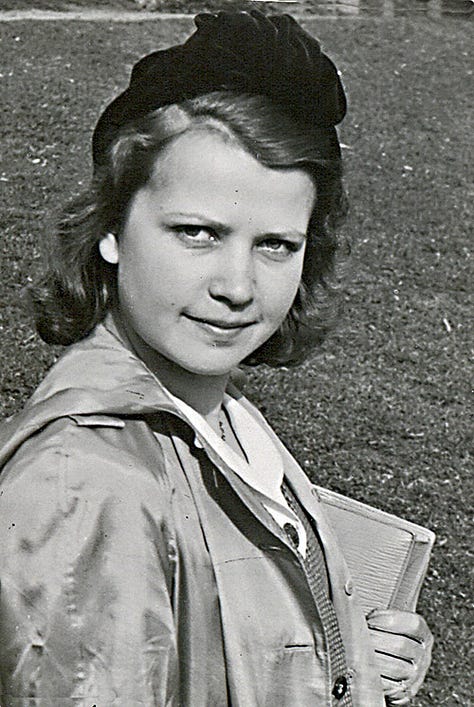
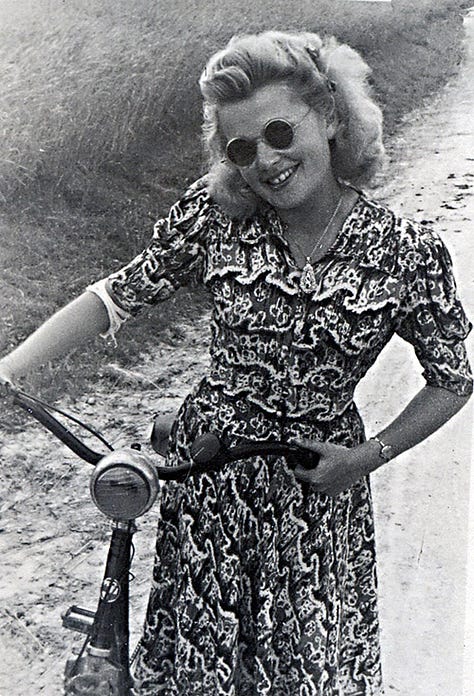
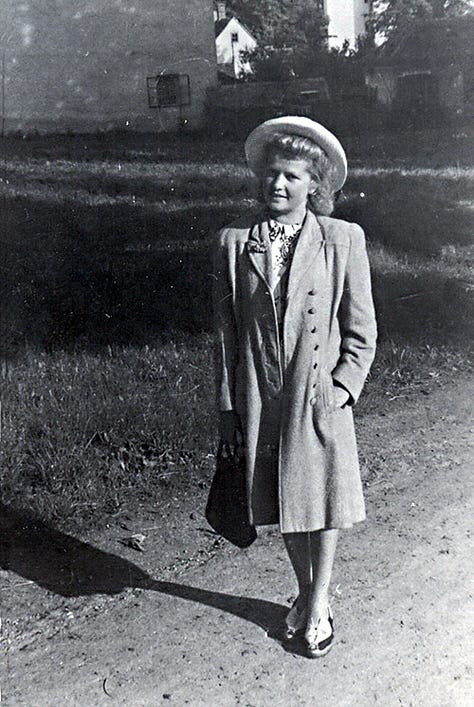
The conversation made me realize that I had never considered my parents’ worries about the many adventures that I had lived through and that they knew about – from being arrested as a rebellious student in Munich in the late 1960s to driving overland from Germany to India, to spending time in Laos in 1973 when the war in Vietnam was still going on, right next door.
The reason why this never occurred to me: I always wanted to get away from my parents, as far away as possible. Even when I was little I constantly felt constricted and confined. My father was a physician and I didn’t see much of him because he was at work during the day. When I was nine they bought a house big enough to include his practice and doctor’s office, but even then – he couldn’t really deal with young children, they should be quiet and obey, that’s how he was brought up. Once I was an older teenager, our relationship changed and he was proud of his daughter; the same happened to my younger sister. “If you thought I was a strict authoritarian when you were a kid, you should have seen how MY father treated US!” (he had four siblings), he once told me somewhat apologetically when I was in my twenties. I believed him – to me, my grandfather always was a cantankerous, unpleasant old man.
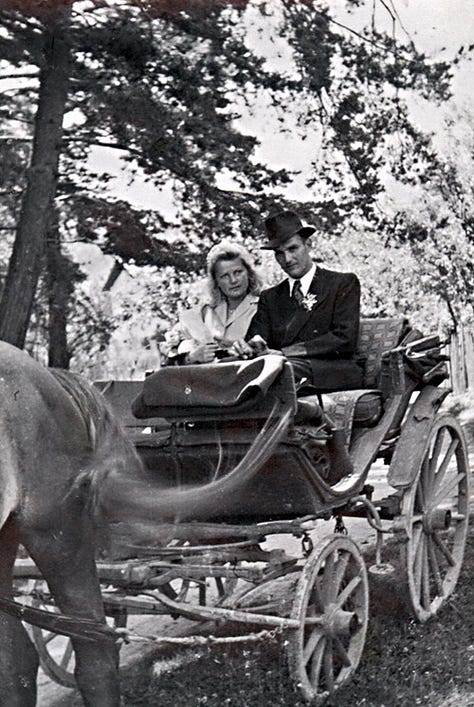
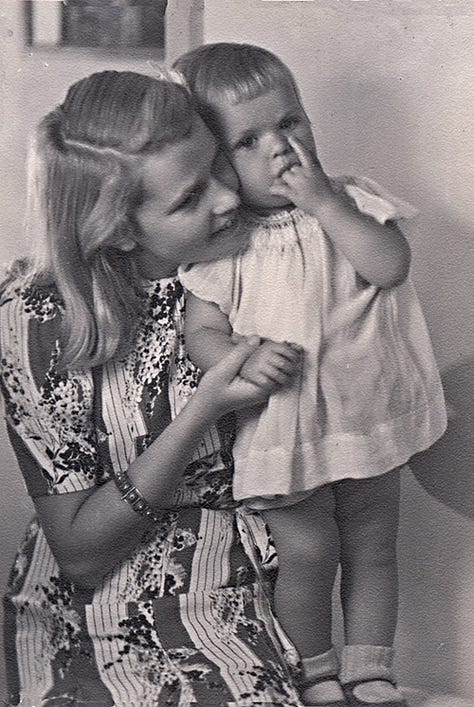
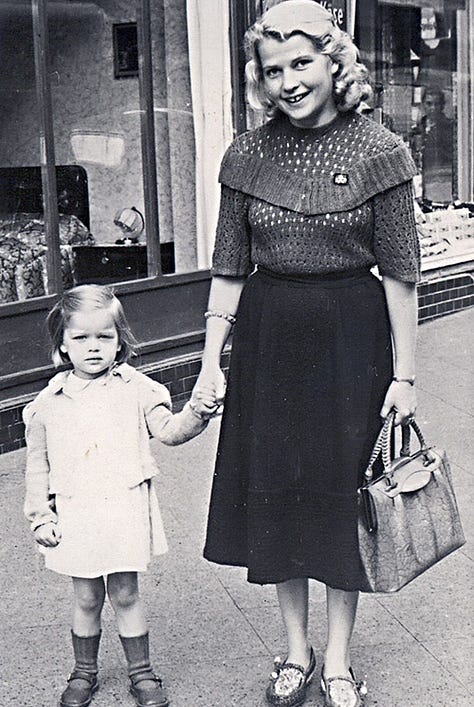
So, during my early childhood until about seventh or eighth grade I spent most of the time when I was at home with my mother, you’d think – but no. Until I was maybe 12 or 13, we had a housemaid; they changed every year or so, but by and large I felt closer to them than to my parents.
My mother was an actress before she became a “housewife” – a role she never fully accepted. My father went to medical school in Graz/Austria, saw her on the stage of the Graz Theater as Gretchen in Faust I believe, and was totally smitten. I can see why; I have black-and-white photographs that he must have taken when they went on bike rides and other outings. I see a radiant young woman, full of life and energy, smiling and laughing. Entirely different from the woman I knew as my mother.
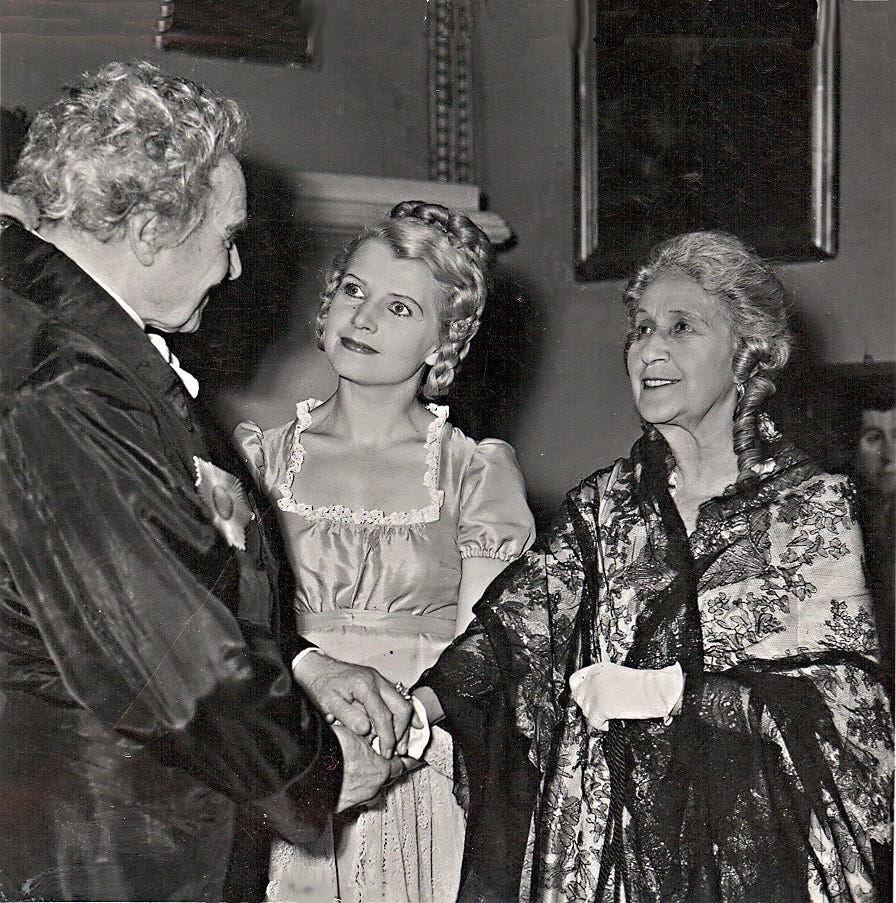
What happened? They got married right before the end of the war, and when Hitler and the Nazis lost, Austria was quick to distance itself from Germany. Austrian citizens who had married a German were forced to leave. I have no idea why my father wasn’t with her, maybe he had to start his residency in Germany, but my mother had to travel all by herself from Graz to the Ruhrgebiet, Germany’s most industrial area full of coal mines and steel-making plants. She was allowed to bring two suitcases, but during the long train ride they became too heavy and she left one behind, she later told me.
Not only did she end up in the Kohlenpott – “pot of coals”, as the coal mining area was aptly named – but she also had to face my father’s family, sight unseen. Both fundamentally changed my mother.
My grandfather ran a construction company; they paved roads and did roofing. Before my parents could buy their own house, they rented the first floor of my grandfather’s apartment building which was adjacent to his office and the courtyard with garages for the trucks and machinery, and storage halls for tons of rolls of tar paper, barrels filled with petroleum and gasoline – in short, a messy, stinky, grubby neighborhood for somebody who had grown up in beautiful Austria. The grandparents and my father’s older, unmarried sister lived upstairs. This was a conventional, bourgeois family, and when my father showed up with an actress – well, to them this was just a tad above prostitute. I remember loud, heated arguments between my mother and my aunt; not the words, but the intensity.
I think my mother subconsciously decided that she had to be holier than the Pope. Not that she became meek; she was always outspoken and opinionated. But she became more conservative, more toned down. Having a family and two daughters (I have a younger sister) destroyed her career and left her clinically depressed, subject to mood swings, and deeply unhappy.
My somewhat stubborn behavior when I was unjustly reprimanded (and often also hit on the head and clobbered; corporal punishment was considered acceptable when I grew up) worked like a lightning rod for my mother’s bad mood. She became only more furious when I didn’t act in a contrite manner. I wasn’t allowed to talk back when she berated me, but my face must have spoken volumes because her tirades became meaner and longer.
My sister, who is six and a half years younger than me, had a much more diplomatic way to handle my mother: when she was denied something she wanted, my sister started to cry and plead. This tactic left my mother in the authority role, and more often than not, she relented. My sister got what she had asked for. Win-win.
Somehow I never accepted that authority – at least, that’s how I explain my defiant attitude. One of my earliest memories: “Did you wash your hands?”, my mother asked before I was supposed to sit down for lunch. I hadn’t, but: “Yes!” I declared. “You did NOT! Don’t lie to me! Remember, I know EVERYTHING!” “If that were true, then why did you have to ask me”, I thought to myself.
When I was eleven or twelve, I ran away from home. I’d had it. I packed my treasures – some foreign coins, a strange seed I had found, my favorite book, and a few other small things. And then I started walking. My plan was to take a streetcar to the town where my aunt, my father’s older sister, lived and where I had grown up. She would take me to the village in the countryside where I had spent many happy vacations, where my grandfather’s younger brother and his wife, and my father’s cousin lived. I felt so free there – everything was open, there were meadows, forests, and fields to explore, there was a river to play and swim in, there were other kids to run around with. Everybody was kind and friendly, and the rules there were easy to follow and made sense.
I had to walk at least for half an hour to reach the city where the streetcar left from. By the time I boarded the tram it was getting dark. When I finally arrived in the town where my aunt lived, it was nighttime… a little scary to walk around all by myself. But I anticipated a delightful future, and it was easy to stay brave.
When I finally got to my aunt’s, my parents had already called several times. They were frantic and had alerted friends, classmates, anybody who might have had an idea what happened to me. It soon became clear that my aunt would NOT take me to my safe haven in the countryside; instead, my father came to pick me up. I don’t remember much from the car ride; he didn’t seem too cross, and we probably didn’t talk much.
Once I got home my mother took the carpet beater and came after me. She screamed and let me know what a miserable, annoying, insignificant, and worthless lowlife I was. We must have presented a hilarious spectacle: I was running away from my mother, around the large kitchen table, and she followed with the carpet beater, trying to hit me. I didn’t experience much physical pain but I felt betrayed by my aunt and hopelessly stuck.
And that’s how I ended up almost on the other side of the globe from Germany.
Well, not really; there were many other factors at play. While I sometimes wonder who I’d be if my mother had been supportive, encouraging, and positive towards me, I’m actually proud of her; she had a difficult life and would have benefited from some counseling. Which was unavailable to her because it was absolutely frowned upon in my parents’ circles. Also, she raised me with art, literature, theater, culture, music, and a strong sense for beauty and quality — things I’m eternally grateful for. More about this another time.





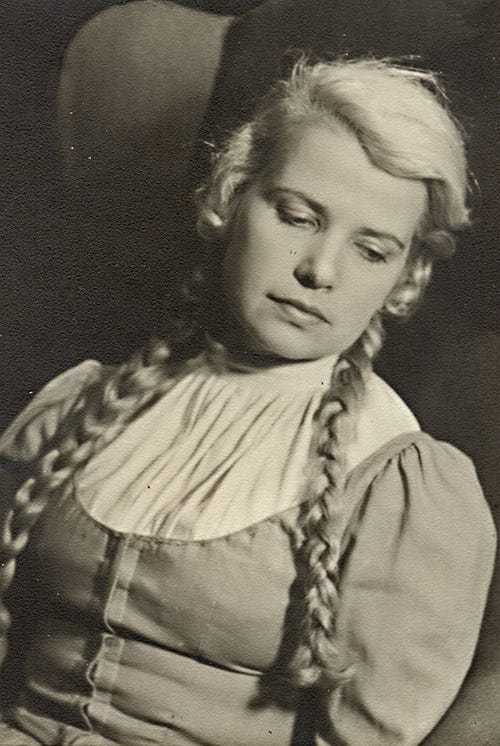
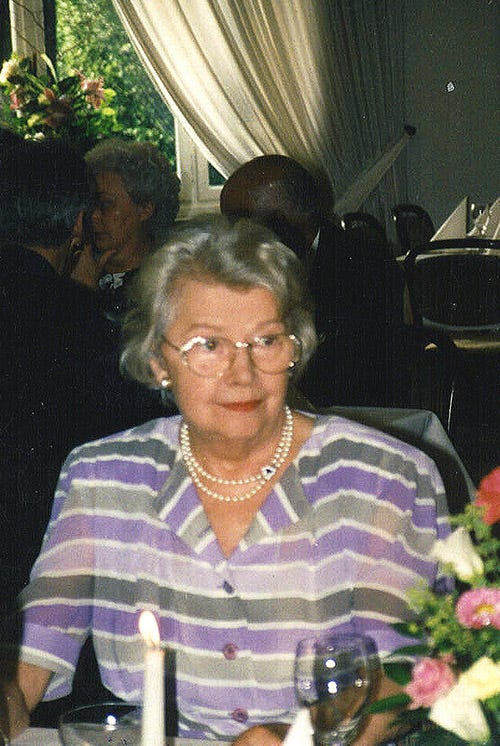
'everybody has to be born in some family' is the comment hannah makes to han in my book / han had just been disclaiming his own depraved childhood / interesting to see you as a child and a teenager / interesting to glimpse any person's childhood / makes you feel like you know that person
A great telling of an unusual time in history. And your parents got caught on the wrong side of the war and had to pay the price. Your mother was a rare beauty and probably loaded with acting talent as well. How very different things would have been for them if they had been able to stay put after the war.
My best friend's father, Eisermann had to leave Berlin in 1933 when the pressure began to get ugly for German Jews. He moved to Chile, married a Chilean woman, Berta, who always treated me so well. I knew them in Holland and she forgave me and my father for what we did to Allende by putting in Pinochet. Thank you Jessica.